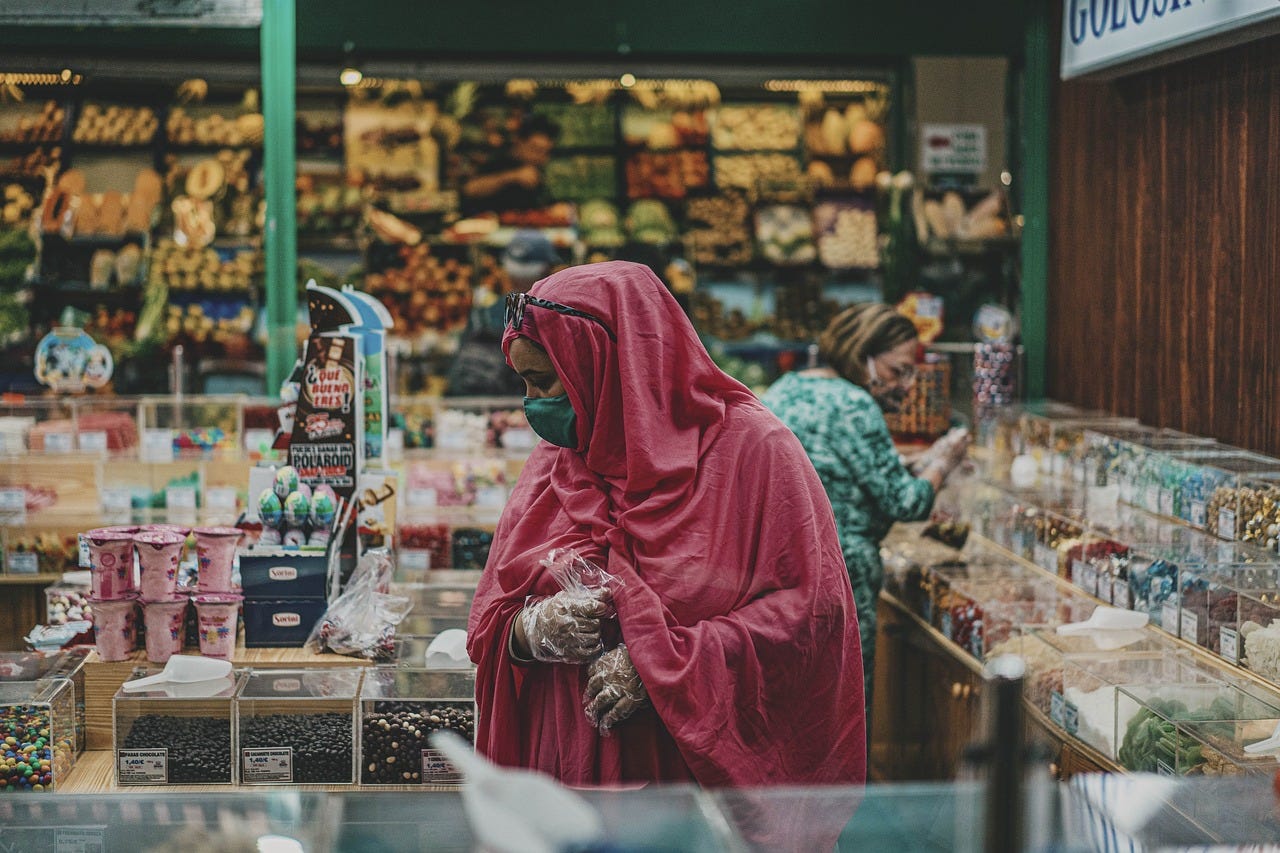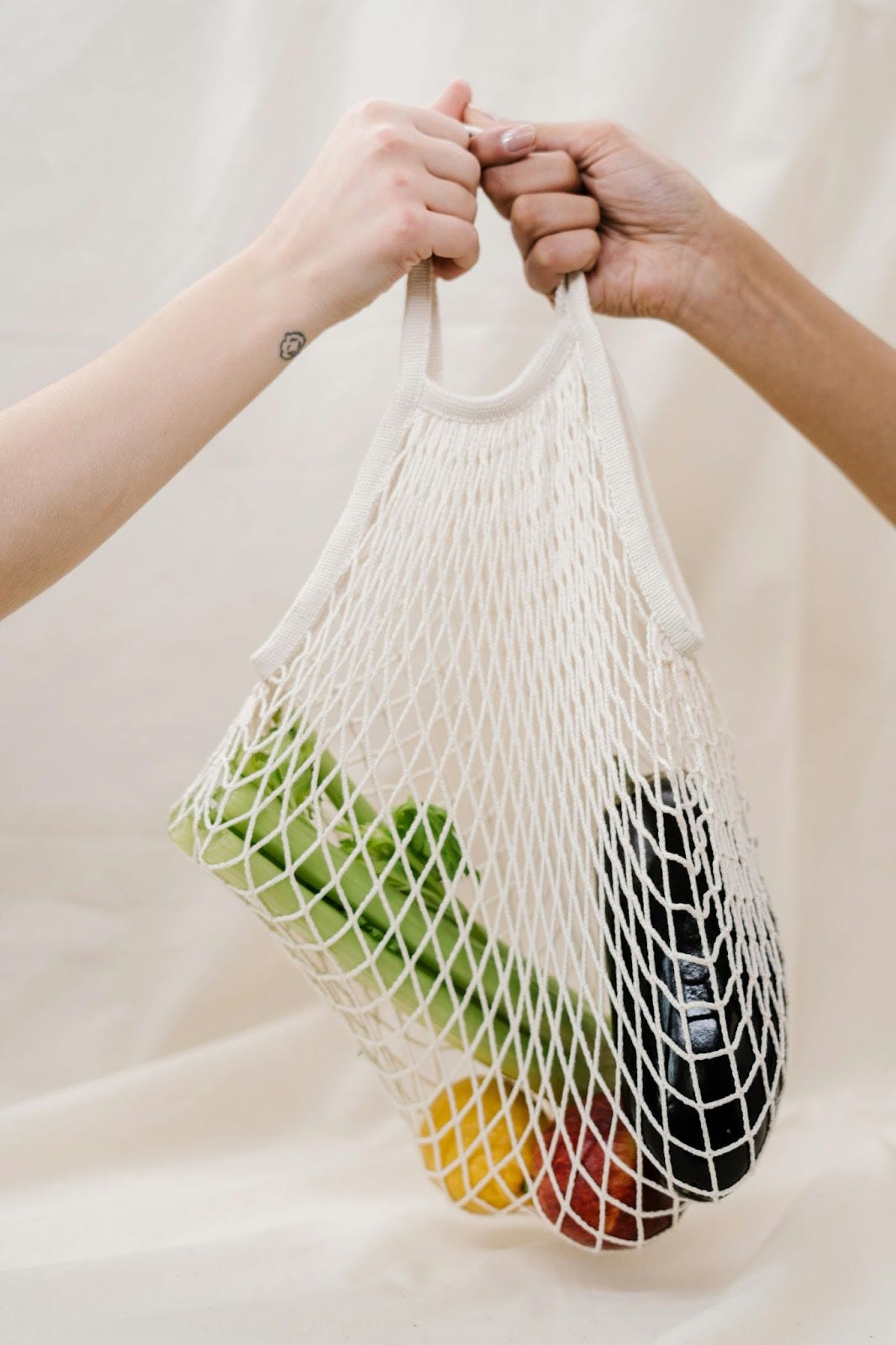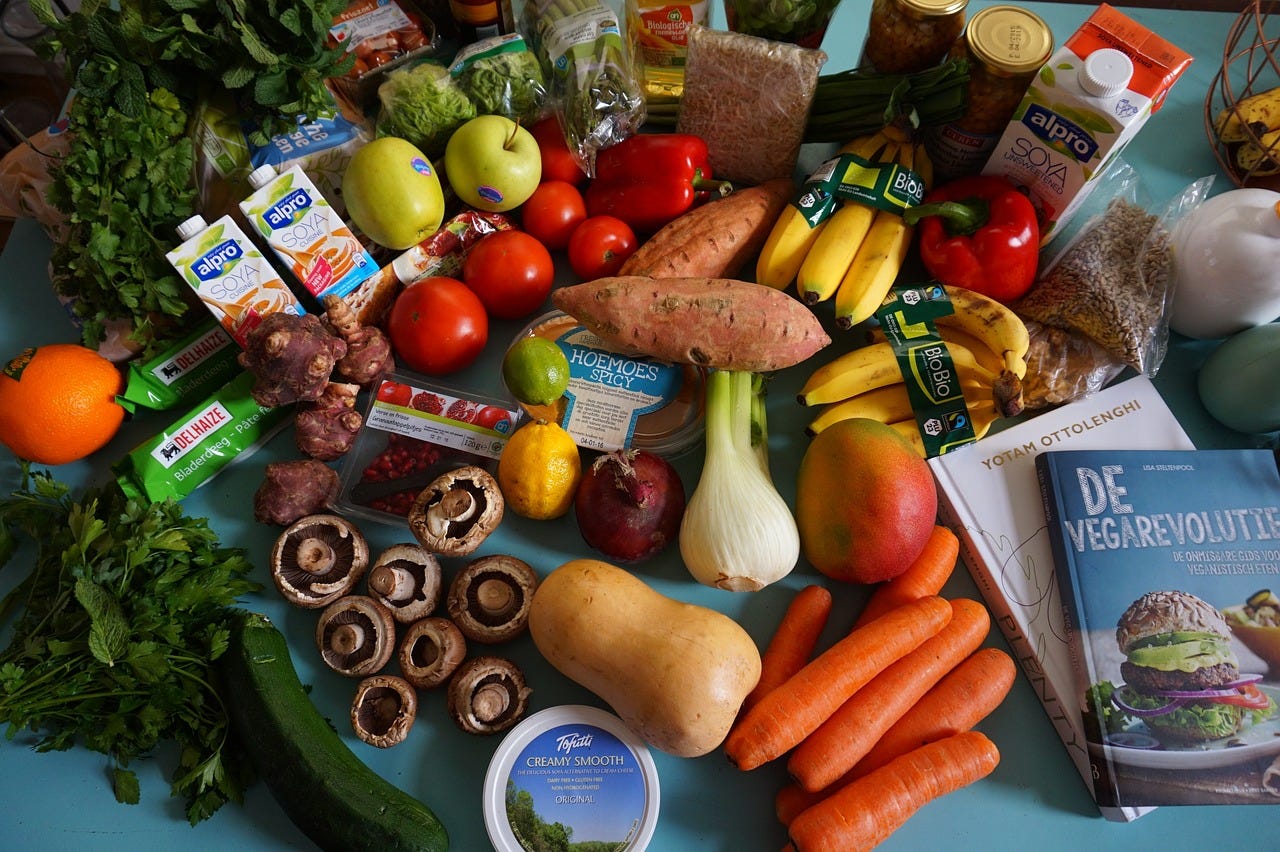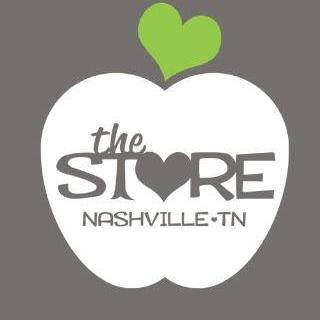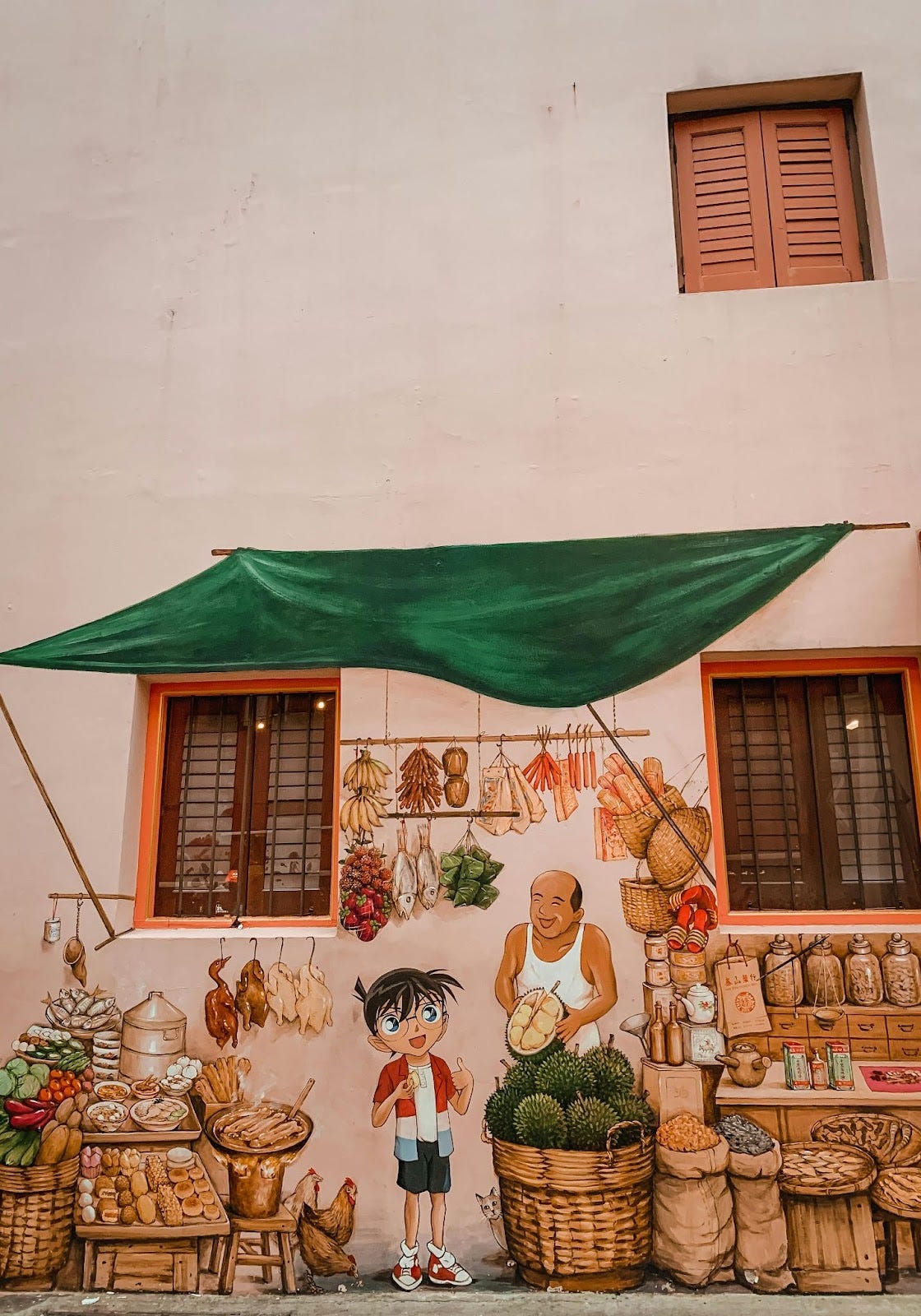Feed Each Other: The Radical Power of Free Grocery Stores
How This Kind of Mutual Aid Transforms Hunger Relief into Community Empowerment
“A banana stands atop of a war machine in green. The title of the mural is "food not bombs", and in the corner it says "governments spend billions in weapons while millions starve." in Berlin” by - HOGRE - via Wikimedia
Imagine walking into a grocery store where there are no price tags, no checkout lines, and no guilt attached to taking what you need. Free grocery stores embody this vision—a radical alternative to the commodification of food and a powerful expression of mutual aid. They enable us to embody the ideal that food is a human right.
Free grocery stores operate on a simple yet transformative principle: access to food is a human right, not a privilege. Unlike traditional food banks, which often require proof of need, free grocery stores are open to all, fostering dignity, solidarity, and community. Their shelves are stocked through donations, community gardens, food rescue programs, and local partnerships.
These stores exemplify mutual aid by addressing systemic food insecurity while also challenging the profit-driven model that suppresses wages and perpetuates hunger. Free grocery stores bring healthy and free food to the neighborhoods historically targeted for their nonwhiteness. Add these to the possible responses to growing hunger amidst the food apartheid in these United States.
Food Justice in Action
Photo by Antonio Cansino from Pixabay
In many communities, food deserts—a direct result of intentional, structural inequalities, or food apartheid—deprive residents of access to fresh, affordable groceries. Free grocery stores combat this injustice by redistributing surplus food and growing networks of care. They are not charity but a means of redistributing abundance, emphasizing that scarcity is a myth in a world that produces more than enough for everyone.
A hallmark of mutual aid is its insistence on horizontal, non-hierarchical structures. Free grocery stores reflect this ethos. Volunteers and participants often co-create these spaces, ensuring the community determines how they operate. This participatory model empowers individuals to take ownership and builds resilience against future crises.
What are some examples of Free Grocery Stores?
Photo by cottonbro studio via Pexels
The Freedge Movement: A network of community fridges offering free food in urban neighborhoods worldwide.
Mutual Aid Grocery Programs: Many mutual aid groups have created pop-up or mobile grocery stores to bring food to underserved areas.
Food Not Bombs: A long-standing organization that provides free meals and often stocks grocery giveaways, directly tying anti-capitalist ideals to practical aid.
Food Not Bombs: Feeding Resistance
"A nation that continues year after year to spend more money on military ‘defense’ than on programs of social uplift is approaching spiritual death."
Martin Luther King, Jr.
Food Not Bombs, founded in 1980, is a grassroots collective that uses food as a tool for social and political change. Operating in hundreds of cities worldwide, the organization focuses on recovering surplus food from markets, bakeries, and other sources to create free, nutritious meals for anyone in need. By doing so, they not only combat hunger but also challenge the systems of waste and inequality inherent in capitalism.
A core tenet of Food Not Bombs is its anti-authoritarian and non-hierarchical structure. Decisions are made collectively, and anyone can participate, emphasizing inclusivity and empowerment. Their work often intersects with protests, community events, and movements for social justice, making Food Not Bombs a vital part of broader struggles against war, poverty, and environmental destruction.
Through its actions, Food Not Bombs exemplifies the principle that food is not a commodity but a right. It stands as a model for how mutual aid can be a form of resistance, transforming surplus food into a means of fostering community solidarity and building power outside of traditional systems. This organization also highlights the absurd levels of poverty and homelessness we accumulated as a result of privatizing everything for the richest people to accumulate wealth.
Spotlight: The Store in Nashville, TN
“The Store” logo via Facebook
One notable example of a free grocery store near me is "The Store" in Nashville, Tennessee. Co-founded by country music artist Brad Paisley and his wife Kimberly Williams-Paisley, The Store operates as a free grocery store with dignity at its core. It provides a welcoming environment where individuals and families can shop for fresh, healthy food at no cost, empowering them to make choices about what they consume.
Photo of “The Store” via Facebook
The Store partners with Second Harvest Food Bank of Middle Tennessee and other local organizations to source its inventory. It also offers additional services such as cooking classes and job training programs, addressing food insecurity and the broader challenges contributing to poverty. By fostering a sense of community and support, free grocery stores exemplify the transformative potential of mutual aid initiatives.
Final Thoughts
Photo by Shann via Pexels
Free grocery stores are more than a stopgap for hunger—they're hubs for community transformation. Workshops on growing food, cooking, and collective organizing often emerge alongside them, turning these spaces into beacons of collective power.
The rise of free grocery stores invites us to reimagine how we address hunger and the systems that cause it. As capitalist systems profit a few people by exploiting most people and fueling climate crises, these initiatives remind us of the strength of mutual aid and the possibilities that emerge when we prioritize people over profit. They may have the power, but we, the increasingly working poor, have the numbers.
Let’s support, replicate, and innovate these spaces, ensuring no one goes hungry—not because of charity, but because of solidarity. We live amongst abundance that is gatekept for profit. Through free grocery stores, we challenge the capitalist paradigm and embody the values of the world we wish to see.
Beyond Darwinism - Mutual Aid Index
Beyond Survival of the Fittest: Kropotkin's Vision of Mutual Aid
What is the role of solidarity and reciprocity in building equitable and sustainable communities?
Mutual Aid Among Plants and Animals: Cooperating for Survival
Peter Kropotkin Observes How Cooperation Among Species Improves Survival and Shapes Evolution.
Frolics and Barn-Raisings: Mutual Aid Amongst the Amish
Take a Look at the Amish Traditions of Collective Action and Solidarity.
The Arab Spring: Mutual Aid in the Fight for Freedom
See Solidarity in Action with the Collective Struggle for Liberation in the Arab Spring Movements.
The Black Panther Party’s Legacy of Community Empowerment Through Mutual Aid
The BPP protected and served their communities despite rampant racism and being the main targets of the FBI’s Counter-Intelligence Program.
Blessing Boxes: Mutual Aid in Our Communities Today
Find Out How These Simple Free Community Pantries Transform Neighborhoods and Promote Solidarity.
Childcare Collectives: A Modern Expression of Mutual Aid
Childcare Collectives develop when families, friends, and neighbors pool their resources to raise children.
Feeding Hope: The Impact of Community Fridges as Mutual Aid
See How Grassroots Efforts Like Chattanooga’s Hope Community Fridge Transforms Food Access and Fights Food Apartheid.
Grow Food Together: The Impact of Community Gardening as Mutual Aid
Shared Gardens Enhance Food Security, Build Community Bonds, and Promote Well-being Without Personal Expense.
Community Self-Defense: Protecting Ourselves and One Another
Let’s Talk About How Communities Work Together to Protect Themselves From Harm Inflicted by the State and Fascists.
Community Workspaces: Where Coworking Meets Opportunity
Find Out How Shared Community Workspaces Support Creativity and Mutual Empowerment.
Deciding Together: The Consensus Model in Mutual Aid
How Collective Decision-Making Builds Strong and Resilient Movements As Shown by Occupy Wall Street.
Live Together, Thrive Together: Shared Housing as Mutual Aid
Imagine Housing as a Way to Build Community and Share Resources.
Breaking Bread, Building Bonds: What’s Cooking in Community Kitchens?
Learn How These Shared Kitchens Create Lasting Change Through Healthy Meals, Cooking Education, and Mutual Aid.
Migration and Mutual Aid: Navigating a Climate Crisis Together
The USA and Global North Grew Rich Burning Fossil Fuels. Radical Cooperation Can Help Us Adapt to a Changing World.
Forgive Us Our Debts: How Debt Collective Helps Abolish Financial Servitude
Debt Collective Branched Off From Occupy Wall Street and Unifies Debtors in Mutual Aid for Collective Liberation.
Thou Doth Protest? How The Diggers Reclaimed the Commons and Fought Early Capitalism
Learn About the Radical Solidarity and Resistance to the Enclosure of the Common Lands in 17th-Century England.
A World Without Barriers: Consider Accessibility in Mutual Aid
Everyone Becomes Disabled if They Are Lucky. So How Can We Make Our World More Accessible?
Mutual Aid in the Eye of the Storm: Disaster Relief Amid Climate Change
When Disaster Strikes, Mutual Aid Responds: A Blueprint for Resilience Amid More Frequent Catastrophes
Beyond the Ballot Box: Build Dual Power for Real Change
Empower People Through Mutual Aid, Solidarity, and Community Control.
Communities of Care: How Solidarity Transforms Support for Elders and the Differently-Abled
How Can Mutual Aid Principles Change Elderly and Disabled Care From Isolation to Connection?
Growing Resistance: How Food Forests Feed Communities for Free and Defy Capitalism
From Commodities to Commons: The Radical Potential of Agroforestry
Roots of Resilience: Black Mutual Aid Societies in American History
Explore W.E.B. Du Bois’ Work and the Heritage of Solidarity Among Black Folk.
From Despair to Dignity: The Radical Work of Free Clinics
How Mutual Aid and Community Solidarity Transform Access to Healthcare
Feeding Each Other: The Radical Power of Free Grocery Stores
How This Kind of Mutual Aid Transforms Hunger Relief into Community Empowerment
Challenge Capitalism One Free Store at a Time
How Free Stores Empower Communities and Challenge Scarcity
The Past & Future of Self-Governance: How General Assemblies Build Dual Power
Strengthen Communities Through Direct Democracy and Mutual Aid
Let Joy Guide You: The Power of Fun in Change Work
Explore the Role of Laughter, Creativity, and Connection in Community Organizing
Fascism Unmasked: How to Recognize and Resist Modern Authoritarianism
Empower Your Resistance: A Practical Guide to Revolutionary Optimism, Mutual Aid, and Defying Totalitarians
Resist Burnout: Care, Coping, and Wellness in Dark Times
How can we practice self-care to endure the revolutionary marathon and better support one another?
Resistance Anthems: Protest Music for Hard Times
Let’s Unite Our Voices For Justice Through the Power of Music!
Affinity Groups: Decentralized Resistance in an Age of Crises
How Do Small, Autonomous Collectives Build Power and Resistance Against Fascism, Capitalism, and Collapse?
Share a Feast: How Potlucks Build Community and Connection
Let’s Discuss How Sharing Food Nourishes Both Bodies and Bonds Across Generations.
Notes From the Underground: How Forests Teach Mutual Aid
How Do Fungi, Trees, and Other Plants Thrive Through Cooperation and Reciprocity?
Fight Book Bans with Little Free Libraries
How Do Little Free Libraries Turn the Tide Against Book Bans and Censorship?
Read, Rest, Revolt, Repeat: Study Groups as Mutual Aid
How Does Collective Study Build Power, Sharpen Strategy, and Sustain Movements?
Burn After Reading: Comms Discipline for Mutual Aid and Resistance
Think About Encryption, VPNs, Walkie-Talkies, and the Lost Art of Keeping Your Mouth Shut.





